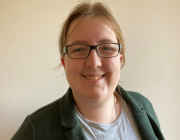I am a third-year PhD student in Sociology and Social Policy at Princeton University. My research focuses on violence and the reproduction of inequality in non-urban America. For my dissertation I will be analyzing the dynamics of community resilience, violence, and inequality in a non-urban American town. My other research interests include the intersection of welfare and criminal justice systems and the dynamics of rural poverty and disadvantage.
See my current CV.
I also have two other ongoing projects. The first is a paper with Dr. Kathy Edin and Dr. Luke Shaefer on violence and social mobility in rural America, with a focus on Black communities in the Cotton Belt. We adopt an institutional anomie framework and quantitative data from the Understanding Communities of Deep Disadvantage project to explore how violence produced contemporary disadvantage in rural counties. My second project is another paper with Dr.s Edin and Shaefer, this one on lynching and slavery as predictors of 21st-century disadvantage.
I am also affiliated with the Understanding Communities of Deep Disadvantage project, a joint research effort led by Dr. Kathy Edin, Dr. Luke Shaefer, and Dr. Tim Nelson and funded by the Robert Wood Johnson Foundation. Our team created a new index of disadvantage that combines public health and poverty measures in order to identify the most disadvantaged counties in America, then selected six of the nation's most disadvantaged places to serve as sites for field work that combines in-depth interviewing and ethnographic methods to explore the nature of their disadvantage and the experiences and resilience of the people who call them home. I spent the summer of 2019 embedded western Kentucy, conducting interviews and ethnographic research. You can find my blog post on social infrastructure and opioids, which resulted from that fieldwork, here.
Prior to coming to Princeton, I received my B.S. in sociology and criminal justice at the University of South Dakota. My honors thesis at USD explored ways members of the queer community assign blame in cases of sexual assault involving victims of different gender identities and sexual orientations.

